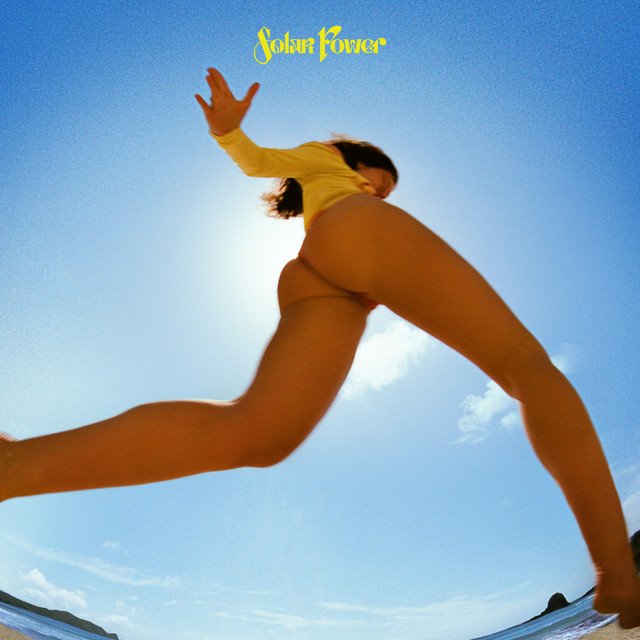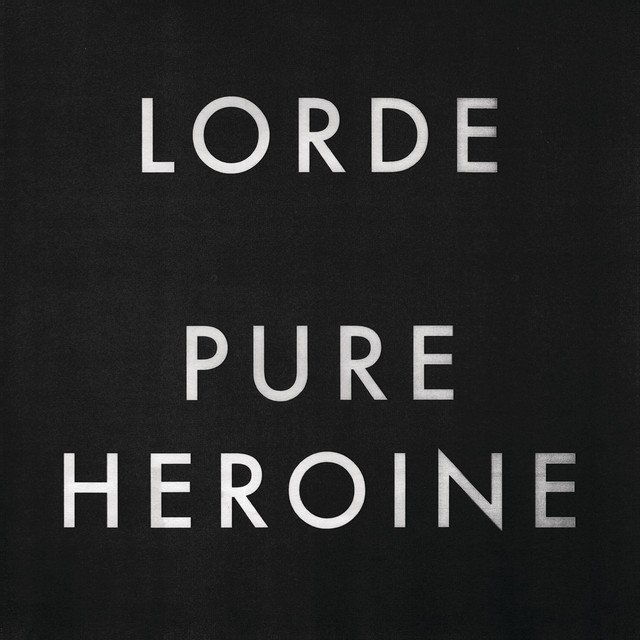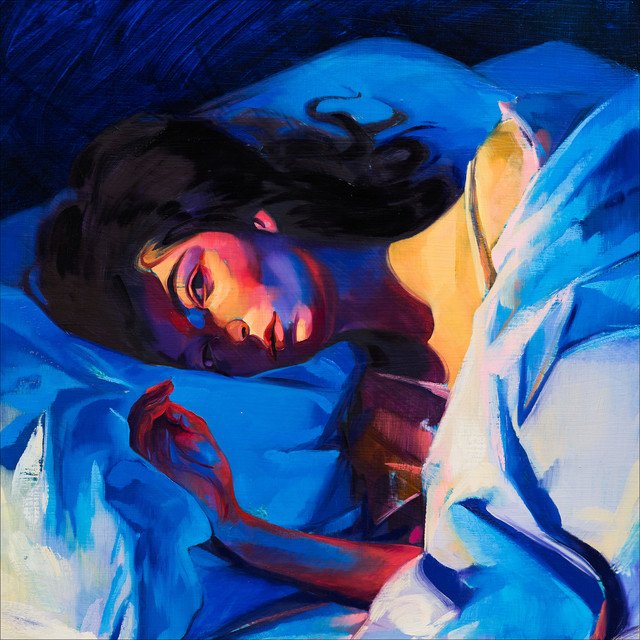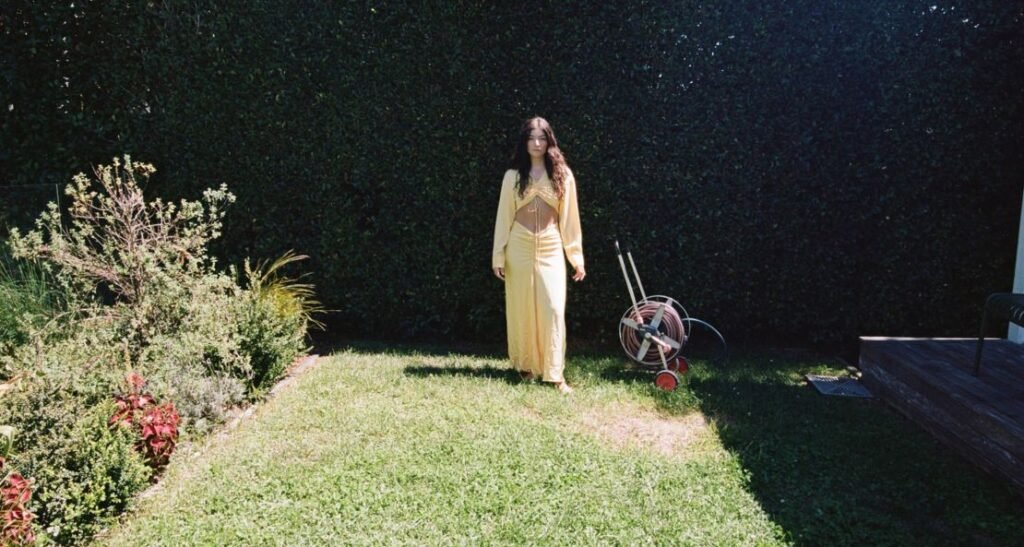Ah, September. The sun’s still out, but it’s got that lazy “see you later” vibe, and suddenly everyone’s swapping iced lattes for pumpkin-spiced chaos.
But just because summer is heading for the exits doesn’t mean we can’t keep basking in Lorde’s Solar Power.
Released on 20 August 2021, this third studio album from New Zealand’s favourite alt-pop queen was produced by Jack Antonoff and written by Lorde herself—who clearly didn’t get the memo that summer has an expiration date.
The Album Cover: A Symbol of Liberation and Playfulness

The cover art, depicting Lorde’s bare buttocks jumping over the camera, further emphasises the carefree, liberated spirit of the album.
Shot by her friend Ophelia Mikkelson Jones, the image went viral and sparked discussion on social media.
The artwork, playful yet provocative, symbolises Lorde’s shift into a more relaxed and less conventional creative space, embracing the raw beauty of her surroundings.
The Title Track That Sparked a Movement… of Confusion
The title song Solar Power sets the tone for the entire album, and it’s worth lingering on.
With a breezy, sun-kissed guitar riff and lyrics that sound like the perfect pitch for a summer solstice festival, the track embodies the carefree escapism Lorde is chasing throughout the album.
“I hate the winter / Can’t stand the cold / I tend to cancel all the plans”—yep, we all feel that.
But then she cranks it up to 11 with, “I’m kinda like a prettier Jesus,” throwing in just the right amount of irreverence to make sure we’re paying attention.
But is this just a happy summer bop? Not quite.
Despite the carefree exterior, Solar Power packs a satirical punch, poking fun at wellness culture while giving us a look into Lorde’s disillusionment with fame and her desire to escape the spotlight.
“Forget all of the tears that you’ve cried / It’s over,” she sings, but is it really?
The track’s mood feels like a half-smile while staring at an existential abyss.
As fans scratched their heads wondering if this was satire or sincerity, Lorde pretty much confirmed it was a mix of both.
Sun-soaked enlightenment with a side of sarcasm.
Shifting Gears: The Album’s Bigger Themes
Solar Power as a song isn’t just about soaking up rays and chilling by the ocean (though, yes, that’s part of it).
It’s about rejecting the toxicity of fame and embracing simplicity. Lorde waves goodbye to the darker themes of her previous albums and steps into a lighter space—both metaphorically and musically.
The song is a literal and thematic turning point, where Lorde sheds the “melodrama” and steps into the sunlight of self-awareness and calm.
This tonal shift is mirrored in the album as a whole, which swaps synth-heavy production for jangly, acoustic vibes that wouldn’t be out of place in a ‘70s California commune.
But don’t get it twisted—Solar Power isn’t just a sun worshipper’s anthem; it’s also a sly dig at the modern obsession with quick-fix spirituality (Mood Ring, anyone?) and the idea that you can just “manifest” your problems away.
By positioning herself as a “prettier Jesus,” Lorde puts herself in the crosshairs of this wellness obsession, and we’re left wondering—is she mocking it, or is she simply tired of it?
Comparisons with Lorde’s Previous Albums: From Pure Heroine to Melodrama to Solar Power

When Lorde dropped Pure Heroine in 2013, it was like a seismic shift in the pop landscape.
Songs like Royals and Team called out the falseness of pop culture’s obsession with materialism and excess, all while coming from the perspective of a teenager who seemed wise beyond her years.
Pure Heroine was stark, minimalist, and incredibly mature for someone who was only 16 at the time.
Its tone was disillusioned, world-weary even, but carried a kind of youthful defiance against societal norms.
Lorde positioned herself as an outsider—someone who saw through the glitz and chose to rebel against it, giving Gen Z the perfect anti-pop anthem.

Four years later came Melodrama (2017), an album saturated with emotion and drama.
While Pure Heroine was a cool detachment from pop excess, Melodrama was full of grand, intimate vulnerability.
It captured the tumult of young adulthood: heartbreak, hedonism, and isolation all tangled in a web of electrifying production and soul-baring lyrics.
Tracks like Green Light and Liability wore their heart on their sleeve, showing Lorde embracing the messiness of life in her twenties.
Where Pure Heroine had a detached rebellion, Melodrama immersed itself in the emotional chaos of relationships and self-discovery.
And then, in 2021, we got Solar Power, which, on the surface, seems like a total rejection of that drama and intensity.
Lorde trades in the neon, synth-heavy beats of Melodrama for acoustic guitars, airy production, and a breezy aesthetic that mirrors her sun-soaked, laid-back lifestyle in New Zealand.
Some fans were left wondering: where’s the angst? Where’s the fire?
But here’s the trick: Solar Power isn’t about that fire—it’s about what happens after it burns out.
This album is the musical equivalent of a deep exhale, a meditation on finding peace after years of turbulence.
While Melodrama was Lorde’s quintessential coming-of-age album, Solar Power reflects an artist who has come of age and is now figuring out how to live with what comes next.
It’s about the search for contentment, not happiness—about learning to live in the quiet spaces in between the highs and lows.
The Broader Cultural Moment: Solar Power in 2021
To understand Solar Power, you also have to consider the cultural backdrop of 2021.
Lorde released this album in the middle of a pandemic, when much of the world was dealing with isolation, anxiety, and the kind of disconnection that makes you want to throw your phone into the ocean—something Lorde literally references in the title track.
There’s an escapist quality to Solar Power that feels like a direct response to the overwhelming heaviness of the time.

It’s no coincidence that Lorde leans into themes of nature and wellness in this album.
In a world where “doomscrolling” became a part of our daily vocabulary, Solar Power feels like a retreat—a conscious decision to step away from the chaos of the outside world.
While some critics found this detachment jarring, it reflects a larger cultural shift towards prioritising mental health, self-care, and, quite literally, going outside.
However, it wasn’t all sun and smiles. Lorde’s satirical takedown of wellness culture in Mood Ring offers a sharp critique of the shallow ways society has tried to cope with existential dread.
The line “Let’s fly somewhere Eastern, they’ll have what I need” perfectly encapsulates the way people latch onto quick fixes and fads, seeking enlightenment in essential oils and mood rings while ignoring the larger problems around them.
Released into a world still grappling with climate anxiety and social unrest, Solar Power feels like both a response to and a critique of the ways we try to escape reality.
The Song That Defined Lorde’s Pivot
So, why does Solar Power as both a song and album title matter so much? It signals a radical shift in Lorde’s career.
As soon as that dreamy guitar riff hits, you know this isn’t the Lorde of Royals or Melodrama.
This is a Lorde who’s swapped high drama for sun-dappled escapism, who’s done with being everyone’s teenage angst queen and is now asking us all to chill out a little—preferably on a beach.
And yet, there’s still that unmistakable tension between the light-hearted instrumentals and deeper lyrical themes.
Solar Power, both the song and the album, isn’t asking you to leave your worries behind; it’s more like a temporary reprieve.
It’s as if Lorde is inviting us to lie back in the sun, knowing full well that reality will hit us once the tan lines fade.
A Slow Burn: Solar Power’s Place in 2024
Fast forward to 2024, and Solar Power still holds its glow. It didn’t light the charts on fire the way Royals did, but three years later, it’s clear Lorde wasn’t aiming for that.
This was an album for the slow burn, a perfect soundtrack for those fleeting late-summer afternoons when the sun is setting but you’re still clinging to its warmth.
With contributions from Phoebe Bridgers and Clairo on backing vocals, the song Solar Power is buoyed by a dreamy, ethereal quality that almost feels like a group hug for your ears.
The whole album’s production, courtesy of Antonoff, is stripped-back, sunny, and soothing—but not without a sharp edge of self-awareness that keeps it from being too “kumbaya.”
Lorde’s Happy (But Not-So-Happy) Return to the Sun
At first glance, Solar Power as an album feels like Lorde’s “happy album.”
But scratch beneath the surface of that glittering acoustic veneer, and you’ll find a more nuanced story.
The title track may shine the brightest, but its rays are bittersweet, reflecting on fame, anxiety, and the healing power of nature—while never fully embracing the naivety of optimism.
Like the sun, it’s warm but burns if you stay too long.
So, whether you’re soaking up the last of summer’s rays or staring down the barrel of pumpkin spice season, Lorde’s Solar Power is here to remind you: the sun might set, but the music will keep glowing.
You might also like:
- Charli XCX and Lorde Unite on The Girl, So Confusing Version: A Remix That Redefines Rivalry
- Charli XCX’s Heartfelt Tribute to SOPHIE: Unraveling the Meaning Behind So I
- Decoding Charli XCX Apple Lyrics: A Deep Dive into BRATs Standout Track
- Birds of a Feather Lyrics by Billie Eilish: Unravelling the Depth & Meaning
- East Harbor’s GHOST: The Perfect Haunt for Your Halloween Playlist
Lorde Solar Power Lyrics
Verse 1
I hate the winter, can’t stand the cold
I tend to cancel all the plans (So sorry, I can’t make it)
But when the heat comes, something takes a hold
Can I kick it? Yeah, I can
Pre-Chorus
My cheeks in high colour, overripe peaches
No shirt, no shoes, only my features
My boy behind me, he’s taking pictures
Lead the boys and girls onto the beaches
Come one, come all, I’ll tell you my secrets
I’m kinda like a prettier Jesus
Chorus
Forget all of thе tears that you’ve cried
It’s ovеr (Over, over, over, over)
It’s a new state of mind
Are you coming, my baby?
Verse 2
Acid green, aquamarine
The girls are dancing in the sand
And I throw my cellular device in the water
Can you reach me? No, you can’t (Aha)
Pre-Chorus
My cheeks in high colour, overripe peaches
No shirt, no shoes, only my features
My boy behind me, he’s taking pictures (He’s taking pictures)
Lead the boys and girls onto the beaches
Come one, come all, I’ll tell you my secrets
I’m kinda like a prettier Jesus
Chorus
Turn it on in a new kind of bright
It’s solar (Solar, solar, solar, solar, solar)
Come on and let the bliss begin
Blink three times when you feel it kicking in
Outro
That solar-olar-olar power
Solar-olar-olar power
Solar-olar-olar power
Solar-olar-olar power
Solar-olar-olar power
Solar-olar-olar power


